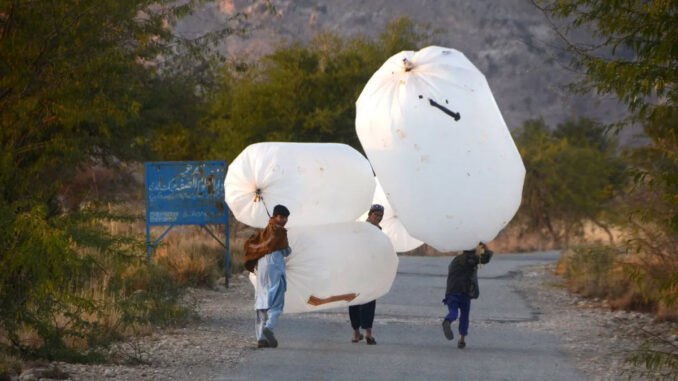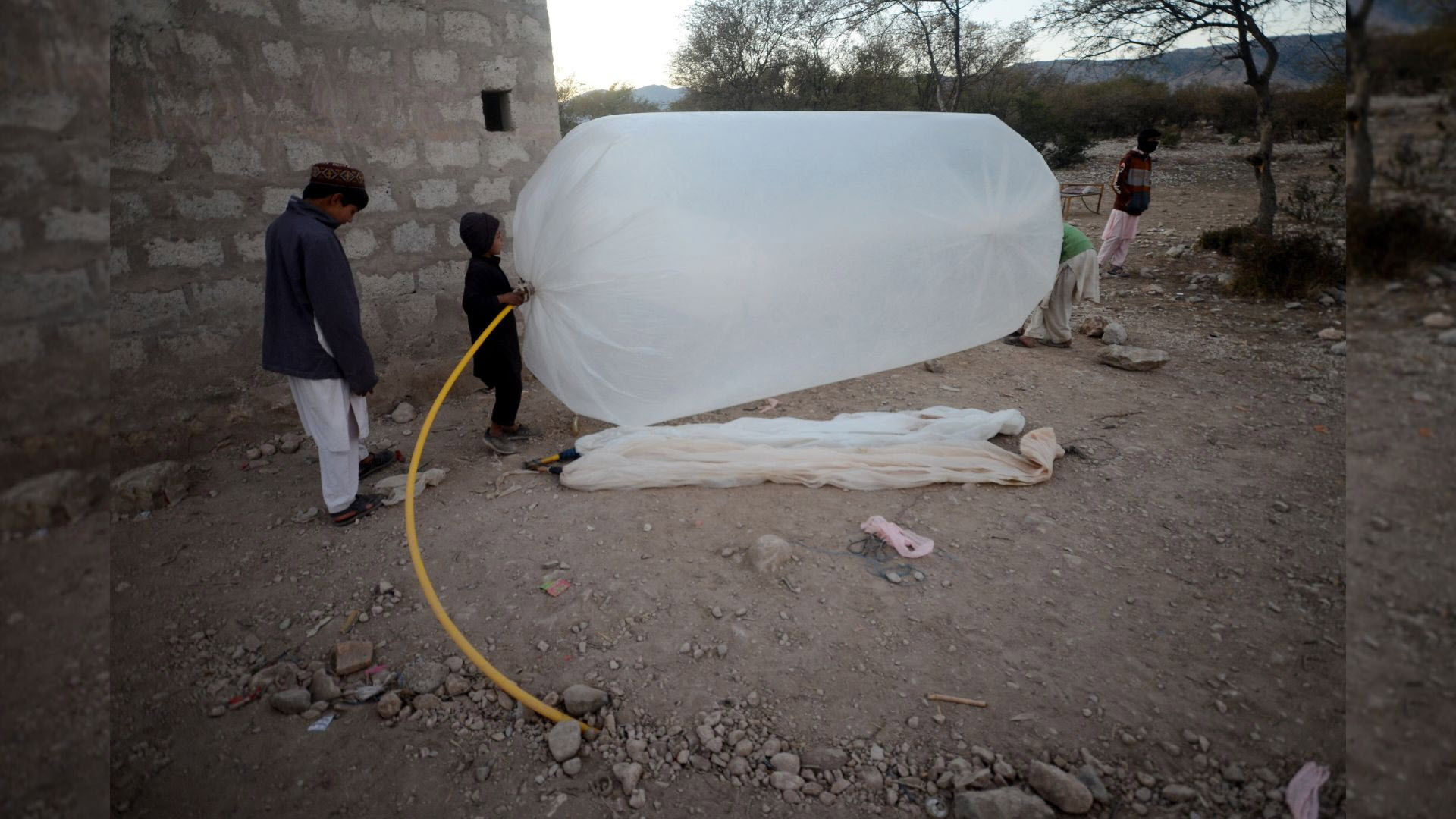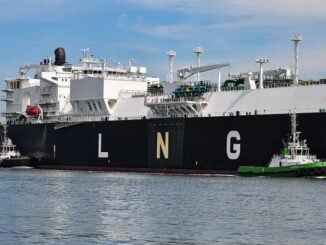
Locals of Karak district in northwest Pakistan are using hoses to siphon gas from main supply lines and filling plastic bags with natural gas to bring it to their homes for cooking.
These risky and illegal means to obtain natural gas for their households’ cooking needs show great desperation and failure of local authorities, as per multiple media reports.
“Pakistan with no natural gas supply to homes, residents of Karak, carry gas for their household needs in plastic bags,” Ghulam Abbas Shah, a Pakistani broadcast journalist Tweeted in late December.
“They are literally moving bombs. Karak has huge estimated reserves of oil and gas, while to the #Karak people, legal gas connections are not provided since 2007,” he said.
The authorities haven’t built the necessary infrastructure to supply the locals with gas despite the region’s vast natural gas and oil resources, according to the residents.
This unlawful, improvised technique, locally called “bag gas,” poses a high risk of explosion.
Due to diminishing gas sources and breached delivery agreements by foreign LNG suppliers, residents have been compelled to turn to these hazardous ways.

Hussain Ali/Anadolu Agency via Getty Images
The Pakistani economy has also been impacted by the high cost of natural gas and petroleum, especially post-2022 devastating floods.
This prevents households from purchasing gas cylinders and forces them to store LPG in reusable plastic bags.
“We’re carrying gas in these plastic bags even though all of us are aware of the dangers of this method,” Hazrat Janan, a local resident, told Anadolu Agency.
At least 16 people were imprisoned by Pakistani officials in the city of Peshawar in December for their involvement in the illicit “bag gas” trade.
However, the illegal business is still going on, with vendors shifting their operations underground and selling to customers they believe won’t complain.
Natural gas crisis in Pakistan
Pakistan, which is the world’s 21st-highest consumer of natural gas, is currently experiencing a severe supply shortage that has gotten worse with the arrival of winter.
While the availability of gas is at about 1.7 billion cubic feet per day (bcfd), demand for it has risen to about 2.5 bcfd.
Two gas companies, Sui Northern Gas Pipelines Limited (SNGPL) and Sui Southern Gas Company Limited (SSGCL), have been granted permission by the state’s Oil and Gas Regulatory Authority (OGRA) to increase their pricing by 74.42 percent and 75.35 percent, respectively.
The decision enables SNGPL and SSGCL to increase their average recommended gas prices by a total of Rs406.28/mmBtu ($1.78) and Rs499.28/mmBtu ($2.19), respectively.
The federal government has been informed of the choice for approval. It would be subject to a decision by the government within 40 days, after which it would automatically take effect.
“The lower slabs who consume less and are almost poor consumers are most affected as their gas prices have been tripled, while for the higher slabs, the prices have been literally reduced,” as per Pakistani media.
Pakistan’s “transition to LNG weakens the country’s energy security and financial stability,” according to a study published by the Institute for Energy Economics and Financial Analysis (IEEFA) in June of this year.
As per IEEFA analysis, Pakistan’s LNG imports, which were roughly $2.6 billion in the financial year 2021, are likely to surpass $32 billion in the financial year 2030.
Meanwhile, the inadequate infrastructure for obtaining natural gas in Karak not only puts the lives of locals in peril but also emphasizes the necessity of Pakistan to address this problem and assure safe economical access to valuable resources.



